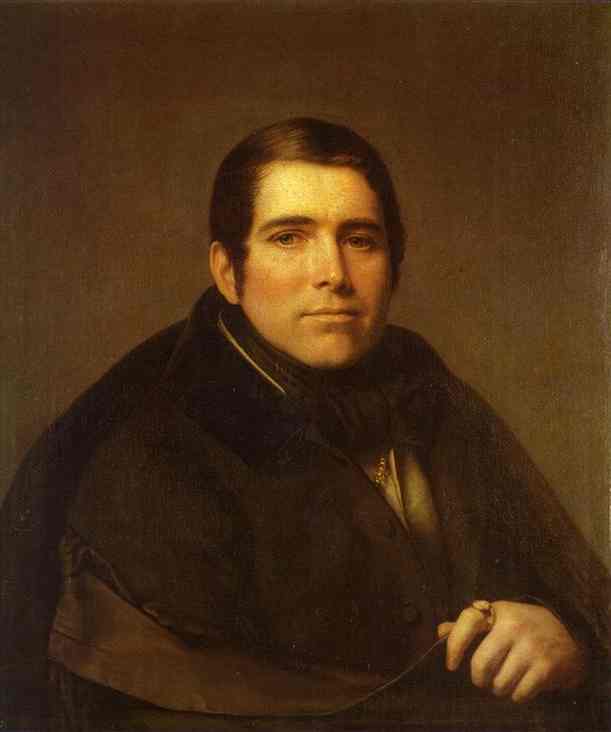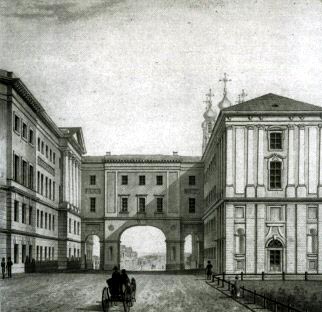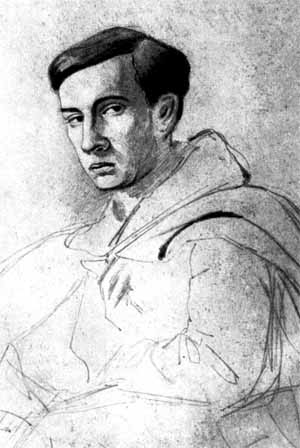|
Alexey Pleshcheyev
Aleksey Nikolayevich Pleshcheyev (russian: link=no, Алексе́й Никола́евич Плеще́ев; 8 October 1893) was a radical Russian poetry, Russian poet of the 19th century, once a member of the Petrashevsky Circle. Pleshcheyev's first book of poetry, published in 1846, made him famous: "Step forward! Without fear or doubt..." became widely known as "a Russian ''La Marseillaise''" (and was sung as such, using French melody), "Friends' calling..." and "We're brothers by the way we feel..." were also adopted by the mid-1840s' Russian radical youth as revolutionary hymns. In 1849, as a member of Petrashevsky Circle, Pleshcheyev was arrested, sent (alongside Fyodor Dostoyevsky among others) to Saint Petersburg and spent 8 months in Peter and Paul Fortress. Having initially been given a death sentence, Pleshcheyev was then deported to Uralsk, near Orenburg where he spent ten years in exile, serving first as a soldier, later as a junior officer. In his latter life, Pl ... [...More Info...] [...Related Items...] OR: [Wikipedia] [Google] [Baidu] |
Kostroma
Kostroma ( rus, Кострома́, p=kəstrɐˈma) is a historic city and the administrative center of Kostroma Oblast, Russia. A part of the Golden Ring of Russian cities, it is located at the confluence of the rivers Volga and Kostroma. Population: History Under the Rurikids The official founding year of the city is 1152 by Yury Dolgoruky.Official website of KostromaKostroma Today/ref> Since many scholars believe that early Eastern Slavs tribes arrived in modern-day Belarus, Ukraine and western Russia AD 400 to 600, Kostroma could be much older than previously thought. The city has the same name as the East Slavic goddess Kostroma. Like other towns of the Eastern Rus, Kostroma was sacked by the Mongols in 1238. It then constituted a small principality, under leadership of Prince Vasily of Kostroma, a younger brother of the famous Alexander Nevsky. Upon inheriting the grand ducal title in 1271, Vasily didn't leave the town for Vladimir, and his descendants ruled Kostroma ... [...More Info...] [...Related Items...] OR: [Wikipedia] [Google] [Baidu] |
Arkhangelsk
Arkhangelsk (, ; rus, Арха́нгельск, p=ɐrˈxanɡʲɪlʲsk), also known in English as Archangel and Archangelsk, is a types of inhabited localities in Russia, city and the administrative center of Arkhangelsk Oblast, Russia. It lies on both banks of the Northern Dvina near its mouth into the White Sea. The city spreads for over along the banks of the river and numerous islands of its river delta, delta. Arkhangelsk was the chief seaport of medieval and early modern Russia until 1703, when it was replaced by the newly-founded Saint Petersburg. A Northern Railway (Russia), railway runs from Arkhangelsk to Moscow via Vologda and Yaroslavl, and air travel is served by the Talagi Airport and the smaller Vaskovo Airport. As of the Russian Census (2021), 2021 Census, the city's population was 301,199. Coat of arms The arms of the city display the Michael (archangel), Archangel Michael in the act of defeating the Devil. Legend states that this victory took place near where ... [...More Info...] [...Related Items...] OR: [Wikipedia] [Google] [Baidu] |
Otechestvennye Zapiski
''Otechestvennye Zapiski'' ( rus, Отечественные записки, p=ɐˈtʲetɕɪstvʲɪnːɨjɪ zɐˈpʲiskʲɪ, variously translated as "Annals of the Fatherland", "Patriotic Notes", "Notes of the Fatherland", etc.) was a Russian literary magazine published in Saint Petersburg on a monthly basis between 1818 and 1884. The journal served liberal-minded readers known as the ''intelligentsia''. Such major novels as Ivan Goncharov's ''Oblomov'' (1859), Fyodor Dostoyevsky's '' The Double'' (1846) and ''The Adolescent'' (1875) and Mikhail Saltykov-Shchedrin's ''The Golovlyov Family'' (1880) made their first appearance in ''Otechestvennye Zapiski''. Founded by Pavel Svinyin in 1818, the journal was published irregularly until 1820. It was closed down in 1830 but resurfaced several years later, with Andrey Krayevsky as its publisher. The renovated magazine regularly published articles by Vissarion Belinsky and Alexander Herzen, catering to well-educated liberals. Other notable ... [...More Info...] [...Related Items...] OR: [Wikipedia] [Google] [Baidu] |
Hugues Felicité Robert De Lamennais , a Welsh given name
{{hndis ...
Hugues may refer to People: * Hugues de Payens (c. 1070–1136), French soldier * Hugues I de Lusignan (1194/95 –1218), French-descended ruler a.k.a. Hugh I of Cyprus * Hugues IV de Berzé (1150s–1220), French soldier * Hugues II de Lusignan (1252/53 –1267), French-descended ruler a.k.a. Hugh II of Cyprus Other: * Hugues (given name) and people bearing it See also * Hugh (other) * Hughes (other) * Huguette, a French given name * Huw Huw is a Welsh given name, a variant of Hugo or Hugh. Notable people with the name include: * Huw Bennett (born 1983), Welsh rugby player *Huw Bunford (born 1967), guitarist in the Welsh rock band Super Furry Animals * Huw Cadwaladr, Welsh poet * ... [...More Info...] [...Related Items...] OR: [Wikipedia] [Google] [Baidu] |
André Chénier
André Marie Chénier (; 30 October 176225 July 1794) was a French poet of Greek and Franco-Levantine origin, associated with the events of the French Revolution of which he was a victim. His sensual, emotive poetry marks him as one of the precursors of the Romantic movement. His career was brought to an abrupt end when he was guillotined for supposed "crimes against the state", just three days before the end of the Reign of Terror. Chénier's life has been the subject of Umberto Giordano's opera '' Andrea Chénier'' and other works of art. Life Chénier was born in the Galata district of Constantinople. His family home, destroyed in a fire, was located on the site of the present Saint Pierre Han, in today's Karaköy neighborhood of Istanbul. His father, Louis Chénier, a native of Languedoc, after twenty years in the Levant as a cloth-merchant, was appointed to a position equivalent to that of French consul at Constantinople. His mother, Élisabeth Santi-Lomaca, whose sister wa ... [...More Info...] [...Related Items...] OR: [Wikipedia] [Google] [Baidu] |
Nikolay Speshnev
Nikolay Alexandrovich Speshnev (Russian: Николай Александрович Спе́шнев; 1821, Kursk - 1882, St. Petersburg) was a 19th-century Russian aristocrat and political activist, best known for his involvement with the pro-socialist literary discussion group the Petrashevsky Circle. He formed a secret revolutionary society from among the members of the circle, which included the young Fyodor Dostoevsky. After the government of Tsar Nicholas I arrested the members of the Petrashevsky Circle in 1849, Speshnev was interrogated, threatened with torture, and eventually sentenced, along with Dostoevsky, Petrashevsky and others, to execution by firing squad. The sentence was commuted to hard labour in Siberia, but the prisoners were only informed of this after enduring a mock execution. Dostoevsky drew on his experiences with Speshnev's secret society and the Petrashevsky Circle when writing his socio-political satire ''Demons''. The novel's central character—Nikolay ... [...More Info...] [...Related Items...] OR: [Wikipedia] [Google] [Baidu] |
Sergey Durov
Sergey Fyodorovich Durov (russian: Серге́й Фёдорович Ду́ров, 1816, Oryol Governorate, Russian Empire - December 18 [o.s. 6], 1869, Poltava, Ukraine, then Russian Empire) was a Russian poet, translator, writer, and political activist. A member of the Petrashevsky Circle and later the leader of his own underground group of intellectuals, Durov was arrested in 1849 and spent 8 months in the Petropavloskaya Fortress, followed by 4 years in Omsk prison. Durov returned from Siberia in 1857, and the ban on his literary activity was lifted in 1862. But, broken physically by his long ordeal, he fell critically ill soon after and died at the age of 54. Biography Sergey Fyodorovich Durov was born in the Oryol Governorate in the family of a minor nobleman. His father, an army colonel, died penniless in 1834. The boy's education in the Nobility Boarding school at the Saint Petersburg University (1828-1833) was paid for by his uncle on his mother side, Nikolai Khmelnitsky, ... [...More Info...] [...Related Items...] OR: [Wikipedia] [Google] [Baidu] |
Pyotr Pletnyov
Pyotr Alexandrovich Pletnyov (russian: Пётр Александрович Плетнёв; , Tebleshi, Tver Governorate — ) was a minor Russian poet and literary critic, who rose to become the dean of the Saint Petersburg University (1840–61) and academician of the Petersburg Academy of Sciences (1841). Pletnyov befriended the poet Alexander Pushkin, who dedicated his novel in verse ''Eugene Onegin'' to him. After Pushkin's death in 1837, Pletnyov edited his literary journal ''Sovremennik'' until the latter was sold to Nikolai Nekrasov in 1846. As a critic, he was strongly opposed to Vissarion Belinsky and like-minded journalists who placed "progressive ideas" above the artistic mastership. With Sergey Uvarov's support, Pletnyov gained many teaching assignments, in and around Saint Petersburg, including in the end a tutor's post to the future Alexander II. His non-partisan view of various literary movements helped him to single out and applaud all of the most gifted wri ... [...More Info...] [...Related Items...] OR: [Wikipedia] [Google] [Baidu] |
Mikhail Saltykov-Schedrin
Mikhail Yevgrafovich Saltykov-Shchedrin ( rus, Михаи́л Евгра́фович Салтыко́в-Щедри́н, p=mʲɪxɐˈil jɪvˈɡrafəvʲɪtɕ səltɨˈkof ɕːɪˈdrʲin; – ), born Mikhail Yevgrafovich Saltykov and known during his lifetime by the pen name Nikolai Shchedrin ( rus, Николай Щедрин), was a major Russian writer and satirist of the 19th century. He spent most of his life working as a civil servant in various capacities. After the death of poet Nikolay Nekrasov, he acted as editor of a Russian literary magazine ''Otechestvenniye Zapiski'' until the Tsarist government banned it in 1884. In his works Saltykov mastered both stark realism and satirical grotesque merged with fantasy. His most famous works, the family chronicle novel ''The Golovlyov Family'' (1880) and the political novel ''The History of a Town'' (1870) became important works of 19th-century fiction, and Saltykov is regarded as a major figure of Russian literary Realism. Bi ... [...More Info...] [...Related Items...] OR: [Wikipedia] [Google] [Baidu] |
Dmitry Grigorovich
Dmitry Vasilyevich Grigorovich (russian: Дми́трий Васи́льевич Григоро́вич) ( – ) was a Russian writer, best known for his first two novels, '' The Village'' and '' Anton Goremyka'', and lauded as the first author to have realistically portrayed the life of the Russian rural community and openly condemn the system of serfdom. Biography Dmitry Grigorovich was born in Simbirsk to a family of the landed gentry. His Russian father was a retired hussar officer, his French mother, Cydonia de Varmont, was a daughter of a royalist who perished on guillotine in the times of the Reign of Terror. Having lost his father early in his life, Dmitry was brought up by his mother and grandmother, the two women who hardly spoke anything but French. Up until the age of eight the boy had serious difficulties with his Russian.Meshcheryakov, V. The Introduction to the Selected Works by D.V.Grigorovich. Moscow. Khudozhestvennaya Literatura Publishers, 1976. Pp. 527-53 ... [...More Info...] [...Related Items...] OR: [Wikipedia] [Google] [Baidu] |
Ivan Goncharov
Ivan Alexandrovich Goncharov (, also ; rus, Ива́н Алекса́ндрович Гончаро́в, r=Iván Aleksándrovich Goncharóv, p=ɪˈvan ɐlʲɪkˈsandrəvʲɪdʑ ɡənʲtɕɪˈrof; – ) was a Russian novelist best known for his novels ''The Same Old Story'' (1847), ''Oblomov'' (1859), and '' The Precipice'' (1869, also translated as ''Malinovka Heights''). He also served in many official capacities, including the position of censor. Goncharov was born in Simbirsk into the family of a wealthy merchant; as a reward for his grandfather's military service, they were elevated to gentry status. He was educated at a boarding school, then the Moscow College of Commerce, and finally at Moscow State University. After graduating, he served for a short time in the office of the Governor of Simbirsk, before moving to Saint Petersburg where he worked as government translator and private tutor, while publishing poetry and fiction in private almanacs. Goncharov's first novel, ' ... [...More Info...] [...Related Items...] OR: [Wikipedia] [Google] [Baidu] |
Andrey Krayevsky
Andrey Alexandrovich Krayevsky (russian: Андре́й Алекса́ндрович Крае́вский; February 17 .S. 5 1810 – August 20 .S. 8 1889) was a Russian publisher and journalist, best known for his work as an editor-in-chief of ''Otechestvennye Zapiski'' (1839–1867), the influential literary journal of which he was also publisher. Another well-known publication Krayevsky founded (in 1863) was the popular newspaper ''Golos'' (''The Voice''). Biography Andrey Krayevsky was born in Moscow, an illegitimate grandson of the chief of the Moscow police Nikolai Arkharov in whose house he was brought up and received primary education. In 1823 he enrolled at Moscow University, from which he graduated in 1828. After graduation Krayevsky joined Moscow's Governor-General's office. He soon began to write articles and reviews for local publications. In 1831 he moved to St. Petersburg to work in the Ministry of Public Education. While serving in that office, in 1835 he started ... [...More Info...] [...Related Items...] OR: [Wikipedia] [Google] [Baidu] |








